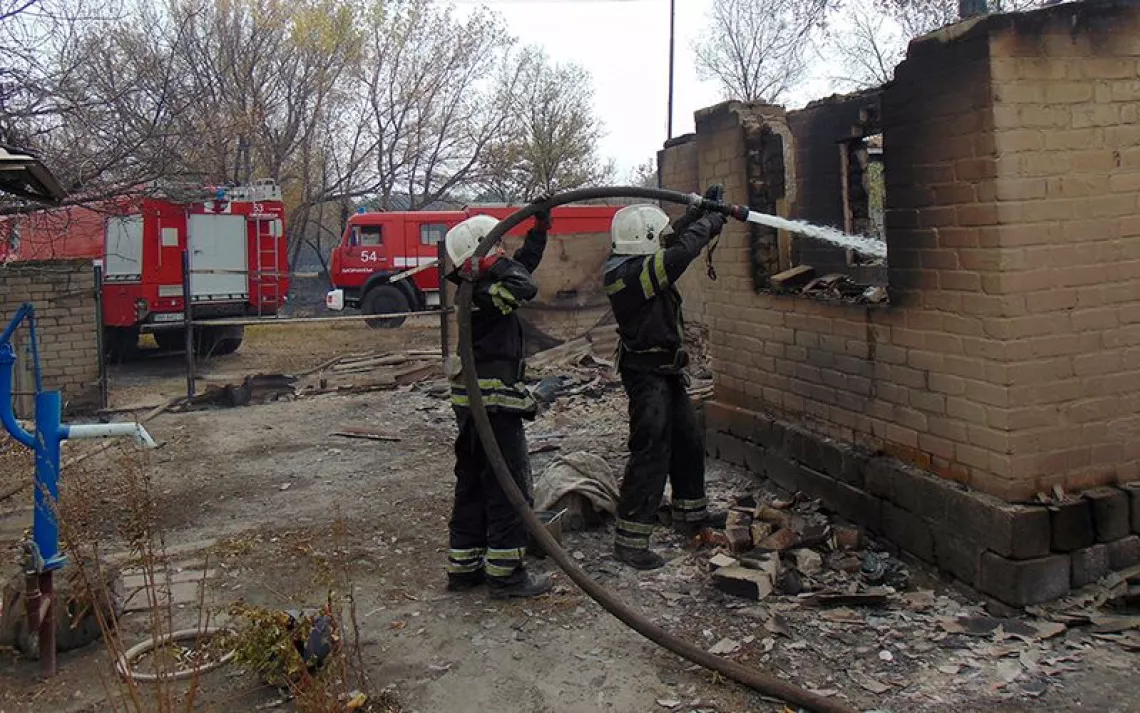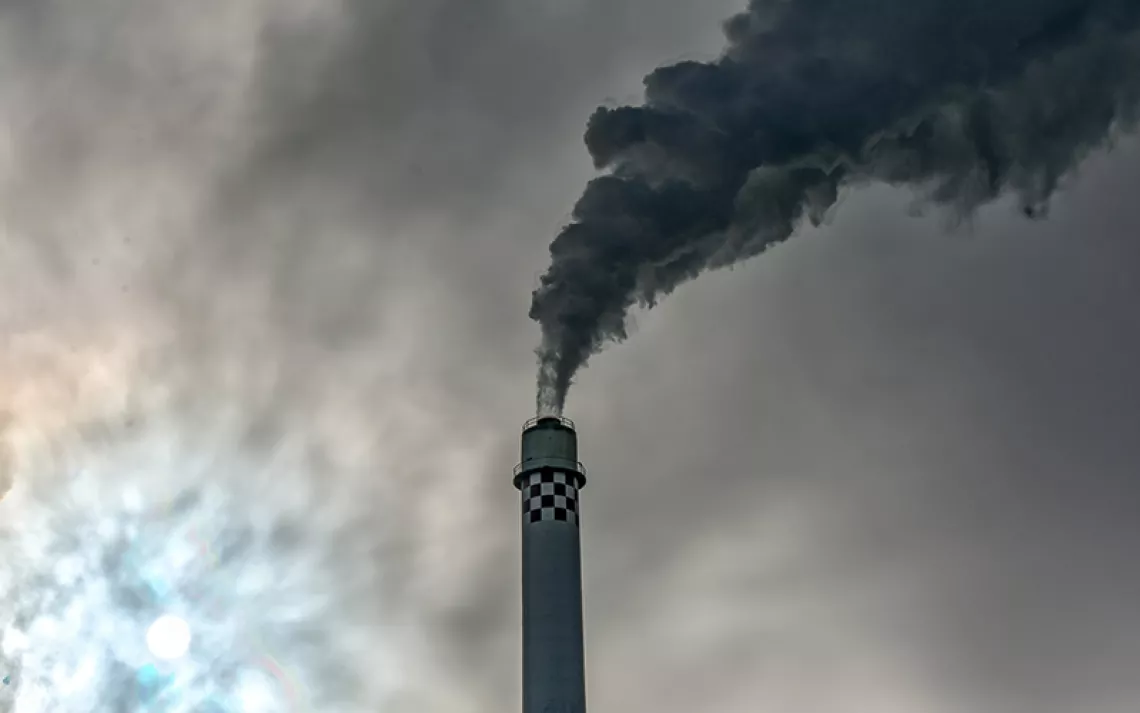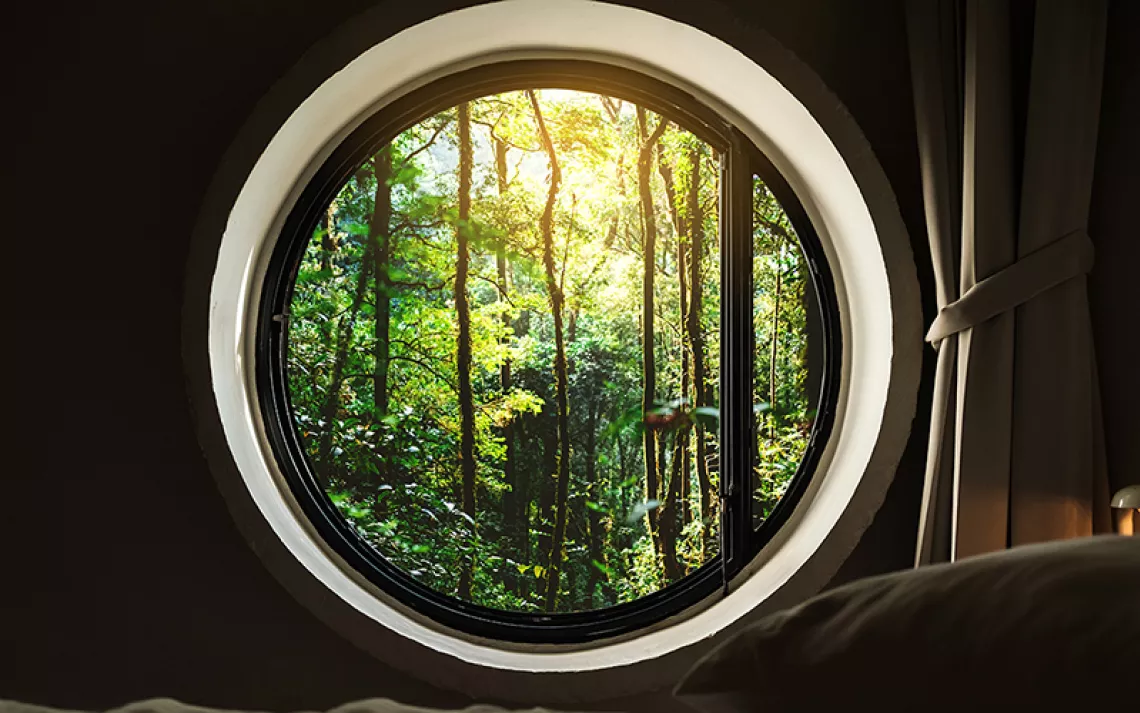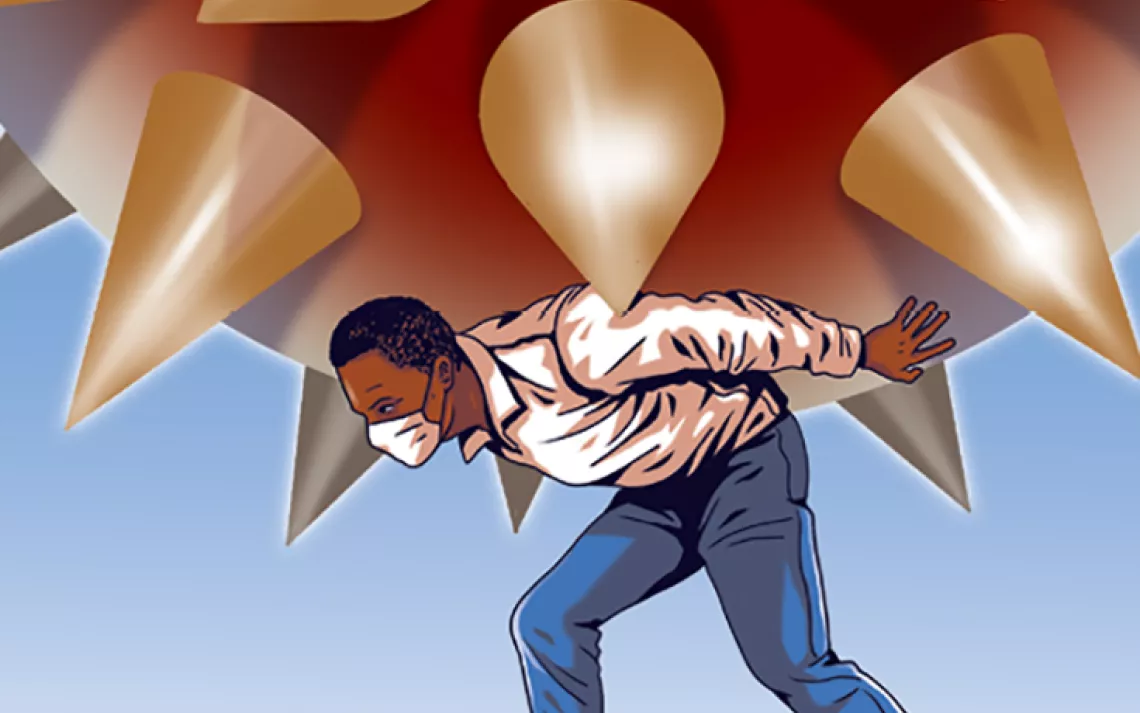“I Can’t Breathe”
What air pollution and police violence have in common

Photo by Jessica Rinaldi/The Boston Globe/Getty Images
Even in nonpandemic times, air pollution is deadly.
Each year, it kills more than 100,000 people in the United States and 5 million worldwide. Most deadly are the tiny particles that are byproducts of the fuels we burn to power our cars, generate electricity, and create the panoply of chemicals that make up modern life. Like the coronavirus that causes COVID-19, they lodge deep in a person’s lungs, triggering a deadly cascade of health problems.
But mortality from air pollution is not evenly distributed: “Communities of color, and in particular poor communities of color, are more likely to live in places with poor air quality than their white, wealthier counterparts,” said Rachel Morello-Frosch, a professor in the Department of Environmental Science, Policy, and Management and the School of Public Health at the University of California, Berkeley. A pair of studies from the University of Michigan and the University of Montana published in 2015 in the journal Environmental Research Letters found that the high concentration of polluting industries in Black and Latino communities was the deliberate consequence of racist policies.
These same communities struggling to breathe are disproportionately harmed by the COVID-19 outbreak. According to the research and analysis group APM Research Lab, Black Americans are especially susceptible to the disease, with a mortality rate that as of June 23 was 2.3 times higher than the rate for white Americans. Based on the race and ethnicity data of 93 percent of the 120,000 people who had died of COVID-19 in the United States, the researchers found that “if they had died of COVID-19 at the same rate as white Americans, at least 16,000 Black Americans, 2,200 Latino Americans, and 400 Indigenous Americans would still be alive.”
Some of these deaths can be attributed to broader social inequities. Black and Latino people, for example, are more likely to hold jobs—including many in health care—that have been declared essential services, putting them at greater risk of exposure to the disease. And because of systemic racism within health care, they’re less likely to be given adequate treatment when they become sick. Rana Zoe Mungin, a Black public school teacher in Brooklyn, was twice denied a COVID-19 test at a local hospital despite exhibiting symptoms. At one point, according to her family, she was told that she was merely having a panic attack. Mungin eventually died of COVID-19.
A growing body of research suggests that air pollution itself is an important factor in these deaths.
“We looked at whether counties that historically have higher levels of air pollution have a higher mortality rate for COVID-19,” said Francesca Dominici, a professor of biostatistics at Harvard University. “We found a statistically significant association.” Dominici was the senior author on a study on the subject that is currently out for peer review. Similar studies are being conducted in Canada, China, Italy, the Netherlands, and the UK, she said, “looking at the relationship between exposure to particulate matter and COVID mortality.” That the association seems to exist across different populations strengthens the likelihood that pollution is a factor.
To understand why, it helps to understand what air pollution does to the body—especially the fine particulate matter known as PM 2.5, which is created from burning oil, coal, and fracked gas. Over the long term, breathing in these particles can permanently damage the lungs, making it harder to breathe. COVID-19 also damages the lungs. Air pollution can damage the heart. COVID-19 also damages the heart. Breathing polluted air makes you more likely to develop type 2 diabetes, a disease that makes you more likely to die from COVID-19.
“You have almost these kinds of feedback loops where the health outcomes that are associated with poor air quality are also the same outcomes that can make populations susceptible to more severe symptoms and mortality risks from COVID-19,” Morello-Frosch said.
If air pollution is the bullet, systemic racism loaded the gun. Research by Morello-Frosch and others shows that while communities of color suffer higher overall levels of air pollution compared with predominantly white communities, it also matters where those communities are located. Segregated cities, such as Memphis and Chicago, have higher levels of air pollution overall than more integrated ones.
In the face of evidence that air pollution is harmful and air pollution during a pandemic is especially so, the Trump administration is making it easier for companies to pollute. Even as the number of COVID-19 deaths was beginning to rise, Trump’s EPA rejected recommendations to raise the national air quality standard for particulate matter and told polluters that it wouldn’t expect routine pollution monitoring and compliance because of the pandemic. Given what we know about how air pollution affects the lungs, Dominici said, “it’s not really the time to relax air pollution regulation and give license to pollute the air.”
The movement that was sparked by George Floyd’s dying words, “I can’t breathe,” is now addressing air pollution as well as police violence. In Louisville, Kentucky, which has one of the highest asthma rates in the country, demands for environmental justice merged with demands for racial justice in the upstart senatorial campaign of state representative Charles Booker. Jamell Henderson, a professor at Brooklyn College and an activist with New York Communities for Change, said in a late-June press briefing, “It’s not just about police reform. It’s about educational reform, mental health reform, social service reform. It’s about health care reform and environmental justice reform.”
This article appeared in the September/October 2020 edition with the headline "I Can't Breathe."
This article was funded by the Sierra Club Foundation.
 The Magazine of The Sierra Club
The Magazine of The Sierra Club



